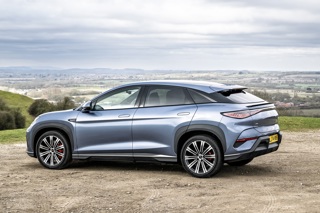In response to: ‘Sustainable aftersales business should be based on unique plan for each customer’ by Piers Tenear-Thomas.
Author: Guy Allman (pictured), chief executive, BTC
The title caught our eye because this is exactly the approach that we not only endorse, but facilitate through solutions such as our autoVHC health check system and the sales and service training that we deliver to franchised dealerships.
What is a vehicle health check for?
The question posed by Piers concerning the purpose of a vehicle health check offered two extremes: identifying opportunities for the motor trade to sell work to customers and maximise profit, and a process for identifying what is required to keep a customer motoring reliably and safely. In my opinion the two need not be exclusive.
The main reasoning behind offering a customer a vehicle health check is to bring better customer experiences by adding value to the service proposition.
Far from being a ‘one–size-fits-all’ approach to customer management, vehicle health checks work right down to an individual level, providing a bespoke report for the customer with a tailored course of follow-up action that references a wide range of factors including the customer’s needs, habits, make of car and even the time of year.
“Combine a thorough knowledge of the customer with an equally thorough knowledge of the car”
We provide training to hundreds of dealerships to encourage staff to ‘think like customers’. The aim of this is to enable staff to identify and understand the needs of the customer and offer a service that adds value and promotes a long-term relationship.
In hard financial terms the average increase in invoice level that we see once a dealership implements our autoVHC system is £25 per invoice.
So the benefit to the dealership is not one of immediate financial gain, but one that hinges on cultivating a long-term relationship with the customer.
Facilitating an informed choice
The article mentions that the limits that trigger the red and amber categorisations are arbitrary and controlled by the dealer.
We would also like to see some standardisation in this matter.
However, the main role of the health check in this area is to provide an accurate assessment of the state of the vehicle and inform the customer of the options available.
The dealership can offer guidance as to the legal requirements and what they recommend based on the customer’s driving patterns and needs, but ultimately the customer must be given all of the available information to make an informed choice.
There is also a duty of care involved to identify issues and inform customers as to the current state of their vehicle.
This not only protects the customer, but guards the dealership in this litigious age against any recourse resulting from an emergency situation resulting from a car that is on the road in a poor or unroadworthy condition.

















Login to comment
Comments
No comments have been made yet.